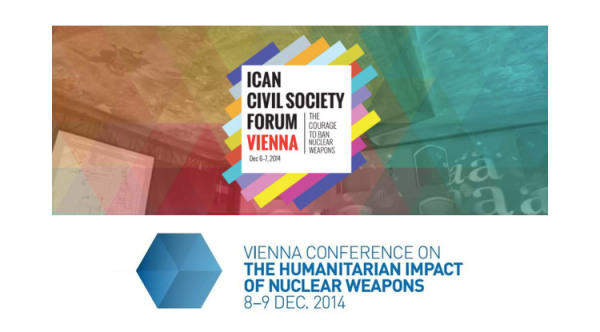The US government signalled its intention to participate in the forthcoming Vienna Conference on the Humanitarian Impact of Nuclear Weapons in early December. The conference is the third in a series of such conferences that started in early 2013 in Oslo, Norway and which was followed up in Nyararit, Mexico in early 2014.
All five permanent members of the UN Security Council have previously boycotted such conferences claiming that they are unhelpful in achieving a world free of nuclear weapons, preferring instead their “step-by-step” approach in the framework of the NPT 5-yearly review cycles.
Anti-nuclear campaigners have increasingly denounced the NPT process regarding it as a series of smokescreens designed to prevent nuclear disarmament and increasingly blame it for proliferation of such weapons to other states, such as India, Pakistan and North Korea.
The Humanitarian approach has been spearheaded by a number of countries and civil society organisations and campaigns such as the International Campaign against Nuclear Weapons (ICAN). Their opinion is that the humanitarian approach could lead to the creation of a nuclear weapons ban treaty that countries could already start signing and ratifying, making the legal status of such weapons clear and leading to divestment from companies that support nuclear weapon maintenance and research.
Despite their intention to attend, in the announcement by the US Government, it was made clear that they do not support the Humanitarian forum as an ambit for discussions of treaties. “This conference is not the appropriate venue for disarmament negotiations or pre-negotiation discussions and the United States will not engage in efforts of that kind in Vienna.”
The Humanitarian initiative has been gaining increasing support over time, as do the annual votes at the UN promoting moves towards nuclear disarmament. In this light the US has clearly decided that it needs to pay more attention to the demands of the rest of the planet.
The behaviour of the US in the NPT forums, their refusal to condemn Israel’s nuclear weapons programme and their refusal to put pressure on all parties in the region to hold a promised conference on a zone free of weapons of mass destructions in the Middle East clearly shows their bad faith in these matters and their intention to hold out against disarmament until the bitter end.
Nevertheless anti-nuclear campaigners are pleasantly surprised by the change of heart by the US administration.
Dr. Rebecca Johnson, Executive Director of the Acronym Institute for Disarmament Diplomacy and member of the International Steering Group of ICAN, called on all the nuclear-armed states to participate as well, while sounding a note of caution, saying, “We should be careful not to play into the US’s stated agenda of directing the attention of non-nuclear nations and civil society away from humanitarian-based solutions into the paralysed NPT and years more of waiting passively for inadequate bilateral arms reduction, as the nuclear-armed states continue to modernise their arsenals.”
Aaron Tovish of Mayors for Peace speculated that, “This is the first crack in the wall of nuclear-weapon state opposition. Normally they like to maintain a united front going into NPT Review Conferences, lavishing undeserved praise on each others’ meager disarmament efforts. If we don’t see the other four following suit in Vienna, the 2015 Review Conference could witness a long-overdue debate on what constitutes ‘good faith’ negotiations. Few states take the step-by-baby-step approach seriously anymore.”
Pressenza will be covering the Vienna conference and the ICAN civil society forum immediately preceding it.










